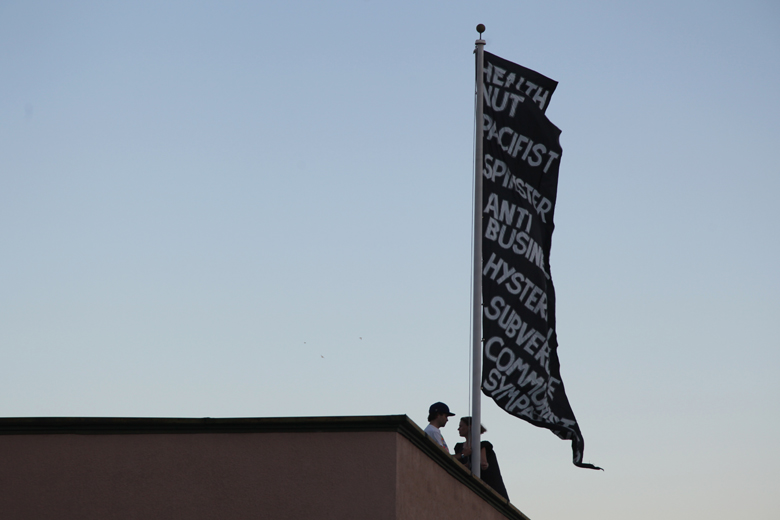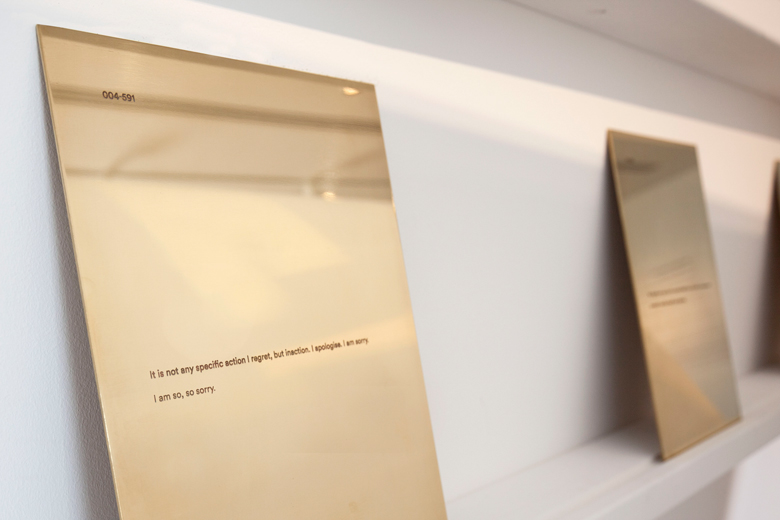
The Apologies, 2022, is an ongoing project first created for a 2012 performance at Night Gallery in Los Angeles, California. This iteration of the work, developed with the writer Andrew Michael Gorin and installed at East Quay gallery in Somerset, UK, represents a series of twenty apologies etched on brass sheets that have been cut in the dimensions of legal-sized paper. The reflective sheets lean on wall shelves mounted behind an empty podium. An audio recording gives voice to this language.
The Apologies dramatises issues of blame, culpability, complicity, and uncertainty surrounding the climate crisis. As the human and environmental costs of climate change have increasingly been realised, questions of liability shift from being matters of speculation to matters of immediate concern. Yet securing acknowledgments of accountability from those responsible has been no easy task, in part because of the vast temporal and spatial scale of the problem. On the one hand, fossil fuel companies and the governments that have supported them are unequivocally at fault. On the other, the fact that the worst impacts of carbon emissions are often felt at a distance from sites of emission, coupled with the historical tendency to locate responsibility at the level of the individual consumer, has made it easier for the prime movers of climate change to evade being held accountable.
In response to this circumstance, The Apologies imagines a world in which there are apologies for the climate crisis. Drawing on research into the historical form of the public apology, we present durable commemorations of apologies not yet given, underscoring the need for discussion of and reparations for climate impacts. Gallery visitors are invited to move among the installation’s texts, stand at the podium, and sit on the benches positioned in the space of the audience. The Apologies calls for consideration of our individual relations to the problem of personal responsibility, foregrounding everyday anxieties about carbon footprints and inaction, while also asking us to contend with the question of who is to blame and why this matters.
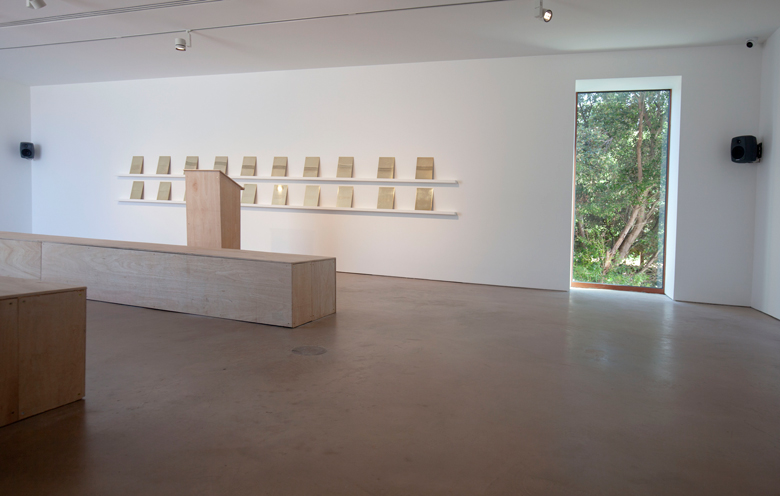
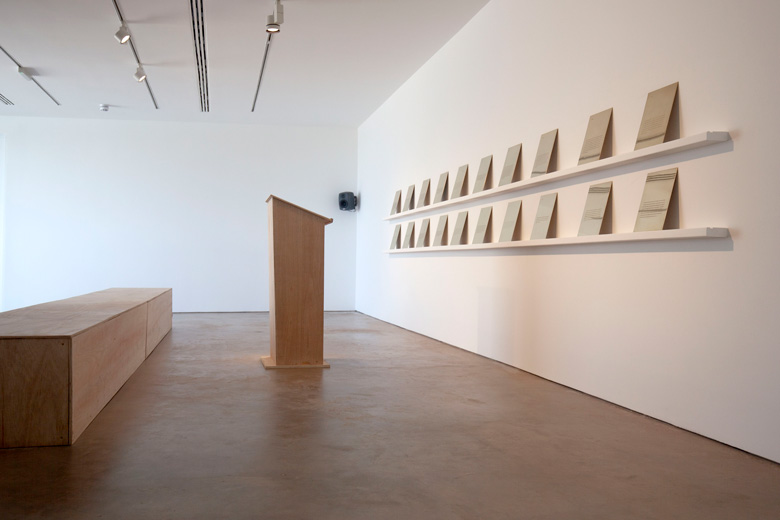
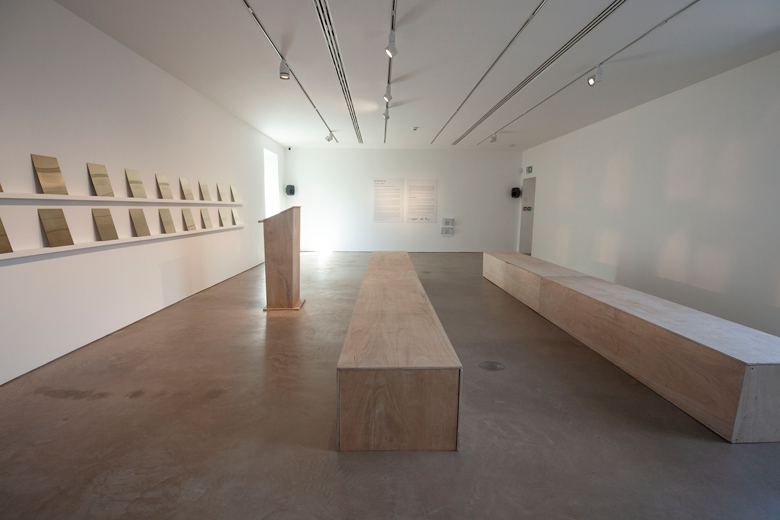
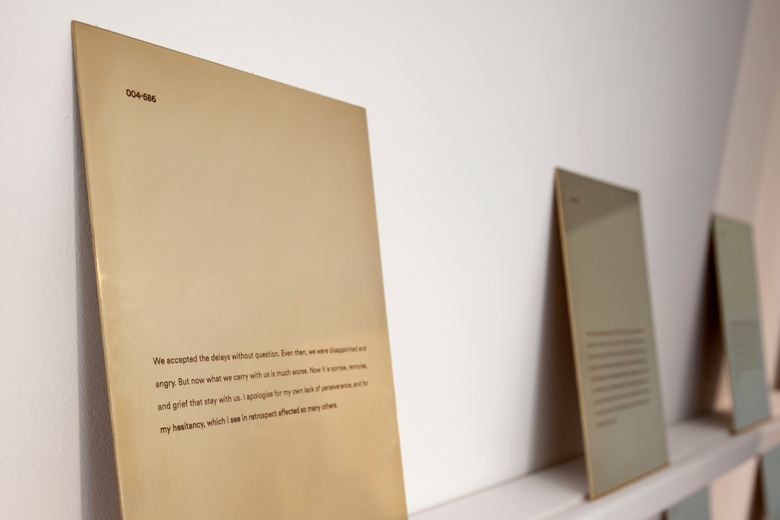
Insults against a 1960s Environmentalist calls attention to the personal attacks made against writer Rachel Carson after her seminal exposé of the chemical industry, Silent Spring. The insults, slurs, and criticisms heaped upon Carson ranged from lifestyle put-downs “health nut” and “spinster” to more openly political statements such as “communist sympathizer.” These insults mark the genesis of the illogical divide between economic progress and environmental protection, while foreshadowing the other progressive movements that would arise to confront the sexism and homophobia faced by Carson.
